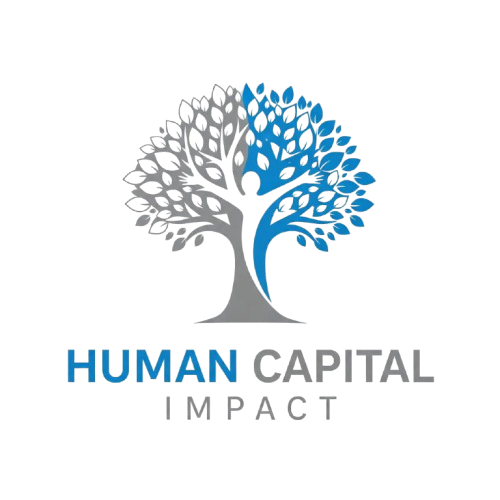As an HR professional with years of experience in leadership and talent development, I’ve had the privilege of working with various generations in the workforce. But what truly resonates with me is the challenge we face in understanding and integrating Gen Z the generation born between 1997 and 2012 into the workplace.
In addition to my professional role, I am also a mother raising two boys from Gen Z and teaching university students from the same generation. This combination of personal and professional experience gives me a unique perspective on the challenges Gen Z faces. While they are incredibly talented, several factors shape how they enter and adapt to the workforce. I believe these challenges are not solely theirs to carry they present an opportunity for companies to evolve and meet Gen Z where they are.
Gen Z often encounters difficulties integrating into the workplace, leading to higher turnover rates. Studies indicate that approximately 65% of Gen Z employees leave their jobs within the first year, driven by their unique values, pursuit of meaningful work, and demand for career growth. Additionally, another survey revealed that 60% of employers have already dismissed recent college graduates hired this year, with 75% expressing dissatisfaction with their performance. These statistics underscore that the challenges Gen Z faces in adapting to workplace expectations are not solely individual but are influenced by broader organizational and societal factors.
What are the factors influencing their behavior and results?
– Technology and digital natives: As digital natives, Gen Z is accustomed to a world of constant connectivity, instant information, and rapid technological change. While this makes them incredibly tech-savvy, it can also create a disconnect when they are placed in more traditional office environments. The way they process information and communicate can be different from previous generations, making adaptation a challenge.
– Various systems of education and parenting: Gen Z has grown up with a focus on self-expression, individual empowerment, and a diverse approach to education. However, many workplaces still operate with more structured, hierarchical systems. This shift can feel disorienting for a generation that values collaboration, inclusivity, and open-ended problem-solving.
– Mental health and work-life balance: Mental health is a core concern for Gen Z, and they seek work environments that promote well-being. As a parent, I see firsthand how much more aware and proactive Gen Z is about their mental health compared to previous generations. This makes them less tolerant of environments that pressure employees to work long hours at the expense of their personal lives.
– Expectations of purpose and impact: One thing that sets Gen Z apart is their desire for purpose in the work they do. As a parent, I see my sons and as an educator, I see my students seek careers that make a difference. This generation isn’t just looking for a job; they want to align their professional lives with their values. This sense of purpose can sometimes clash with corporate objectives that are more profit-driven.
I often come across articles and comments that stereotype Gen Z, painting them in a negative light. While it’s true this generation faces unique challenges, they also possess incredible potential. If leadership can find ways to harness this potential, it can become a significant investment in the company’s success. Despite the obstacles, Gen Z brings immense strengths to the workplace. Here are some of the key qualities they offer:
1. Digital and Technological Savvy: Gen Z is a generation of innovators. They are experts in digital tools and social media, and they are quick to adapt to new technologies. Their expertise in these areas can help organizations stay ahead of the curve in a rapidly evolving digital landscape.
2. Creative Problem Solvers: Growing up in a world of constant change, Gen Z has learned to be creative thinkers. They approach problems with a fresh perspective, are adaptable, and come up with innovative solutions to challenges qualities that are invaluable in today’s fast-paced world.
3. Diverse Perspectives: Gen Z is one of the most diverse generations. Their ability to see things from various perspectives and appreciate different cultures and experiences enhances creativity and innovation in the workplace.
4. Social Awareness: This generation is deeply concerned about social justice, the environment, and ethics. They want to work for companies that reflect their values, and they are motivated by missions that make a difference. As a mother, I see my kids and their peers actively seeking to make the world a better place, and that same drive is evident in the workplace.
What leaders and HR can do to integrate Gen Z effectively:
1. Create flexible work environments: Gen Z values flexibility, so offering remote work options, flexible hours, and a healthy work-life balance is crucial. This is something I strongly advocate for in my professional life, as it aligns with the evolving needs of this generation.
2. Provide clear career pathways: While Gen Z is eager to make an impact, they also want clear guidance on how they can progress in their careers. As someone who mentors students and works with young professionals, I’ve seen how crucial it is to offer opportunities for growth, mentorship, and feedback.
3. Foster a collaborative culture: Gen Z thrives in collaborative environments where open communication is encouraged. Leaders should create spaces where their voices are heard and their contributions are valued. This doesn’t just apply to the workplace it’s something I emphasize in my university classes as well.
4. Focus on purpose-driven work: Gen Z’s desire for meaningful work should not be overlooked. Leaders can help align company goals with this generation’s drive for purpose by highlighting how their roles contribute to the greater good of society and the environment.
5. Embrace technology and innovation: Gen Z’s comfort with technology can be a huge asset. By embracing new tools and platforms, organizations can create a more dynamic, efficient, and innovative work environment.
6. Prioritize mental health and well-being: Gen Z places a strong emphasis on mental health, and it’s essential that leaders prioritize well-being in the workplace. Offering support for stress management, work-life balance, and mental health resources is a powerful way to show that you care about your employees’ holistic success.
By understanding the challenges and leveraging Gen Z’s potential, organizations can unlock a wealth of creativity, innovation, and engagement. As we work together to bridge the gap, we not only help Gen Z thrive but also create a more dynamic and forward-thinking workplace for all generations.
Let’s embrace change and work together to create environments that enable every generation to flourish and provide their best effort.

